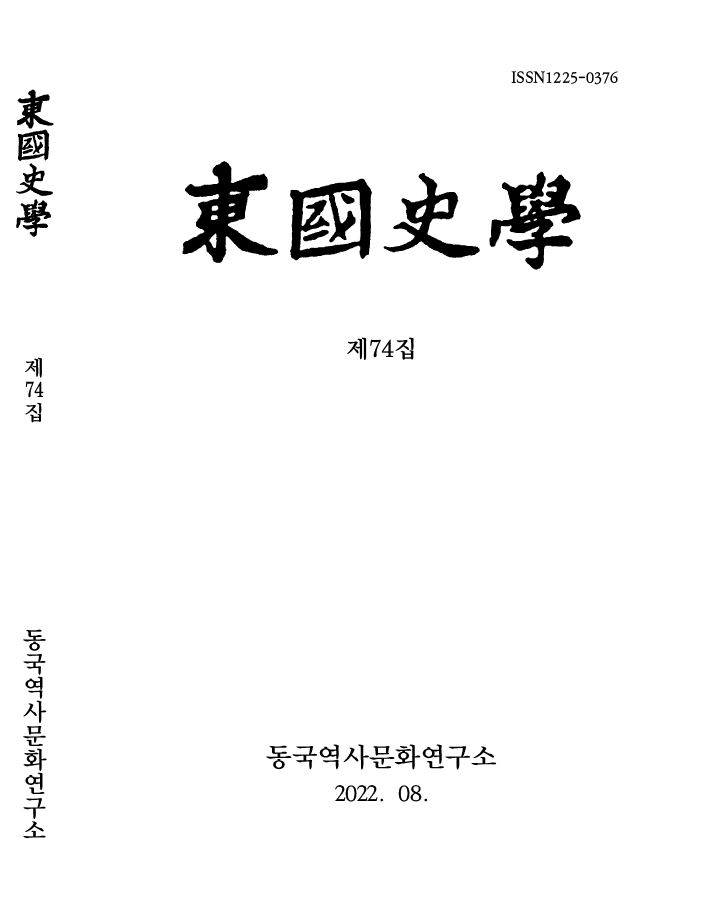학술논문
동아시아에서 두부의 기원, 진화, 확산
이용수 152
- 영문명
- The Beginning, Evolution, and Diffusion of Tofu in East Asia
- 발행기관
- 동국역사문화연구소
- 저자명
- 주영하(Joo, Young Ha)
- 간행물 정보
- 『동국사학』제74집, 47~74쪽, 전체 28쪽
- 주제분류
- 인문학 > 역사학
- 파일형태
- 발행일자
- 2022.08.31
6,160원
구매일시로부터 72시간 이내에 다운로드 가능합니다.
이 학술논문 정보는 (주)교보문고와 각 발행기관 사이에 저작물 이용 계약이 체결된 것으로, 교보문고를 통해 제공되고 있습니다.

국문 초록
이 글은 두부가 중국에서 발명되어 동아시아로 확산하는 과정을 기원·진화· 확산의 측면에서 살피는 데 목표를 두고 있다. 오늘날 중국학계에서는 두부의 발명자로 회남왕(淮南王) 유안(劉安, BC 179~122)을 꼽는다. 그러나 이 주장은 문헌에 관한 비평이 제대로 행해지지 않은 상태에서 민간에서 알려진 속설에 근거한 것이지, 역사적 사실이 아니다. 필자는 8~10세기 중국의 북방 목축민과 남방의 농민 사이에 요리기술의 교류가 잦았고, 그 과정에서 치즈 만드는 방법에서 착안해두부가 발명되었다고 본다. 두부는 발명된 초기에 순두부 형태였다가, 점차 성형두부의 형태로 진화했다. 『本草綱目』과 『山家要錄』의 두부 제조법은 압착 과정을 거치지 않은 순두부이다. 적어도 15~16세기에 중국과 한반도의 두부는 순두부와 성형 두부가 공존했을 가능성이 크다. 그러나 17세기 이후 두부 제조법이 진화하면서 성형 두부가 널리 퍼졌다. 동아시아 여러 지역으로 두부가 확산하는 데 가장 결정적인 요인은 불교였다. 특히 일본의 에도시대(江戸時代, 1603~1867)에 ‘육식금기’가 강조되면서 두부의 다양한 제조법이 개발되었다. 일반적으로 중국에서는 일반 두부에서부터 발효 두부인 취두부(臭豆腐)에 이르기까지 두부에 다른 음식재료를 혼합한 요리법이 많은 편이다. 일본에서는 두부에 다른 재료를 넣은 혼합 두부가 많다. 한국인은 다양한 두부 요리와 응용 두부보다는 두부 그 자체를 선호한다. 19세기 말 일본의 식품산업이 세계화의 길을 걸으면서 ‘산업화된 두부(industrial tofu)’의 시대가 열렸다.
영문 초록
This article examines the historical process of tofu’s invention in China and its dissemination in East Asia in terms of beginning, evolution, and diffusion. Chinese studies today often attribute the invention of tofu to Liu An 劉安(179-122 BC) the King of Huainan, but this is not a historically verified fact and is based largely on popular legends. I maintain that the invention of tofu was inspired by cheese making when the pastoralists of the north and the agrarian farmers of the south began frequent exchange of culinary skills during the eighth to tenth centuries. Tofu was made in soft, uncurdled forms in the early years of its evolution and gradually progressed into firm, curdled forms. Methods of tofu making as introduced in the Chinese Bencao gangmu 本草綱目 and Korean San’ga yorok 山家要錄, as well, did not use compression and thus made soft tofu. It is highly likely that soft and firm tofu coexisted in China and Korea as late as the fifteenth and sixteenth centuries. It was after the seventeenth century when molded tofu spread widely, as tofu manufacturing developed. The crucial drive behind the dissemination of tofu to various East Asian regions was Buddhism. In Edo Japan (1603-1867) various tofu making was conceived along with the strict prohibition of meat-eating diet. Generally speaking, there are more recipes for cooking tofu-ranging from the regular kind to the fermented kind (called choutofu ‘stinky tofu’)-with other foods into various tofu plates, whereas in Japan developed more ways to make tofu with other additives and ingredients into blended tofu. Koreans tend to prefer eating tofu itself to cooking it with other recipes or modifying it into different kinds. The era of ‘industrial tofu’ came with the globalization of Japanese food that started in the nineteenth century.
목차
Ⅰ. 들어가는 글
Ⅱ. 두부의 기원 : 유안의 두부 발명설에 대한 검토
Ⅲ. 두부 제조법의 진화 : 순두부에서 성형 두부로
Ⅳ. 두부의 확산
Ⅴ. 나가는 글
키워드
해당간행물 수록 논문
- 20세기 초 미국의 관세법 논쟁
- 月城尉 金漢藎 家門의 공간이 갖는 역사적 의미
- 동아시아에서 두부의 기원, 진화, 확산
- 한일 중학교 역사교과서의 근대 조약 서술 분석
- 百濟 大姓八族과 東아시아 8姓
- 明代 군인의 瘴病 감염과 담배
- 1620~1627년 조선의 遼民 인식과 송환론
- 고구려의 동해안 방면 교통로와 물류 유통
- 관동대학살에 대해 해외 조선인이 생산한 문건과 그 성격
- 6~7세기 고구려 中裏制의 운영과 人事
- 당 제국과 지방제후-위기와 재건
- 동아시아에서 신라 삼국통일의 의미
- How Did the War of 1812 Contribute to Expansion of Slavery in Post-War of 1812?
- 『알탄 칸傳』에 나타난 16세기 우익 몽골에서의 물품 유통
참고문헌
교보eBook 첫 방문을 환영 합니다!

신규가입 혜택 지급이 완료 되었습니다.
바로 사용 가능한 교보e캐시 1,000원 (유효기간 7일)
지금 바로 교보eBook의 다양한 콘텐츠를 이용해 보세요!





